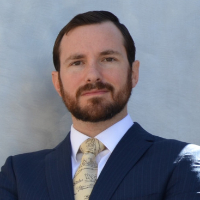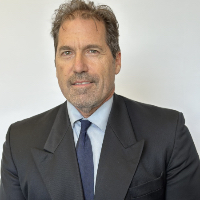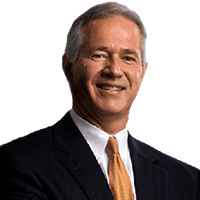 Newark White Collar Crime Lawyers, Texas
Newark White Collar Crime Lawyers, Texas
Sponsored Law Firm
-
 x
x

Click For More Info:
-
The Law Offices of Richard L. Cooper, P.A.
848 Brickell Avenue Suite 800 Miami, FL 33131» view mapDWI/DUI, Drug Trafficking, Felony Nationally Ranked Top 40 Under 40
With Richard L. Cooper you can expect a trusted confidant who will work diligently to fully understand your case and determine a road map to help you regain control of your life.
800-756-2781
Sponsored Lawyers
1-10 of 11 matches
Criminal, DUI-DWI, Expungement, White Collar Crime, Juvenile Law
Attorney Timothy D. Godwin, the founding attorney of Godwin Law Firm, PLLC, brings a robust focus in criminal defense. With a Juris Doctor degree from Texas A&M, Timothy leverages his academic background and a sharp legal acumen to serve clients effectively. His practice areas address a wide range of legal scenarios, ensuring that each client receives thorough and attentive guidance. Primarily centered on criminal defense, Attorney Godwin works on matters including felonies, traffic tickets, expunctions and more. As a dedicated legal professional, Timothy is committed to understanding and addressing the unique needs of each case, providing tailored advice and robust defense strategies. To schedule your free consultation with the Decatur Criminal Defense Attorney, please fill out a form online or call us at 940-255-0000.
(more)Criminal, DUI-DWI, Misdemeanor, Felony, White Collar Crime
Christopher Lankford is licensed to practice law in all Texas state courts, Federal court (Northern District of Texas), and the Supreme Court of the United States. He focuses exclusively on criminal and DWI cases in Tarrant County, Texas. By practicing exclusively criminal defense in Tarrant County, he knows the ins and outs of the courts. He takes pride in fighting for individual's rights, freedom, and protecting them from the harsh consequences of the criminal justice system. Christopher has been named a Top 100 Trial Lawyer by the National Trial Lawyers Association for Texas (North) and Top Attorney by Fort Worth, Texas Magazine every year since 2014. He is rated "10.0" and "Superb" by Avvo attorney ratings, Avvo's highest rating. Christopher graduated from Baylor Law School with a concentration in criminal law. He is also a graduate of the Texas Criminal Trial College in Huntsville, TX, class of 2014. The Criminal Trial College is considered one of the most rigorous pieces of training a criminal defense lawyer can undergo. He is a member of the State Bar of Texas, Federal Bar Association, Tarrant County Criminal Defense Lawyers Association (TCCDLA), Texas Criminal Defense Lawyers Association (TCDLA), Tarrant County Bar Association (TCBA), Christian Trial Lawyers Association (CTLA), National College for DUI Defense (NCDD), and the College of the State Bar of Texas. Christopher is a United States Marine Corps veteran. Enlisting a month after September 11, 2001, he served primarily as a legal administration clerk. He also served in key roles such as a security specialist and a marksmanship instructor. He now spends much of his free time volunteering, attending sporting events, or participating in triathlons, endurance, and adventure races.
(more)Criminal, DUI-DWI, White Collar Crime, Domestic Violence & Neglect, Juvenile Law
As a Fort Worth defense attorney, Cody has worked privately defending hundreds of clients and was also appointed as an Assistant Federal Public Defender. His trial experience includes practically every kind of criminal charge: sex trafficking, drug conspiracy, murder, theft, DWI, and white-collar crimes. He has argued appeals in state and federal court, including the Texas Court of Criminal Appeals; Fort Worth Second Court of Appeals; and the Fifth Circuit Federal Court of Appeals. Cody regularly teaches evidence and trial advocacy to other attorneys. Meet with Cody to talk about your Tarrant County or Federal criminal case, and to ask about his 10 years as a criminal trial attorney.
(more)Criminal, Identity Theft, Personal Injury, White Collar Crime, DUI-DWI
John Robinson has been licensed to practice in Texas since 1991 and attained Board Certification in Criminal law from the Texas Board of Legal Specialization in 1998. His Board Certification is a mark of excellence and a distinguished accomplishment that only one in ten Texas attorneys attains. That Certification indicates that Mr. Robinson has substantial, relevant experience and has demonstrated the same in his representation of clients accused of committing crimes. Mr. Robinson is relentlessly committed to the protection of the constitutional rights of every client. For that, Mr. Robinson is respected throughout Dallas County and surrounding Counties. His experience in preparation, negotiation, and the trial of criminal cases is unparalleled. With over twenty five years of experience throughout the Dallas/Fort Worth area, Mr. Robinson has successfully defended hundreds of clients. His results include numerous dismissals and not guilty verdicts at trial.
(more)Criminal, Federal Appellate Practice, DUI-DWI, RICO Act, White Collar Crime
John R. Teakell has over 30 years experience in criminal law as both a prosecutor and criminal defense attorney. Those charged with serious crimes seek John Teakell out for legal counsel because of his deep criminal law subject matter experience and firsthand knowledge of state and criminal court procedures. Teakell began his career as an Assistant District Attorney and worked as a Senior Trial Counsel for the U.S. Securities and Exchange Commission where he prosecuted civil enforcement actions of fraudulent schemes in White Collar cases. Before going into criminal defense Mr. Teakell spent over 12 years in the U.S. Attorney’s Office as a federal prosecutor, most of which at the Northern District of Texas where he was designated as a bank fraud prosecutor. However, during this period Teakell also prosecuted all types of federal crimes in the Northern District of Texas including extraordinarily large drug trafficking and money laundering cases as an Assistant U.S. Attorney in the District of Puerto Rico, as well as federal death penalty cases. Today Mr. Teakell represents defendants in criminal cases throughout the State of Texas in federal and state courts, as well as cases in federal courts throughout the United States including Puerto Rico. As a criminal defense attorney and trial lawyer, Mr. Teakell has successfully defended those charged with violent crimes, drug manufacturing and distribution, and white-collar crimes including money laundering, bank fraud, securities fraud, and violations of federal securities law.
(more)



 Richard L. Cooper Miami, FL
Richard L. Cooper Miami, FL AboutMiami Attorney at Law
AboutMiami Attorney at Law ServicesCriminal Defense
ServicesCriminal Defense





